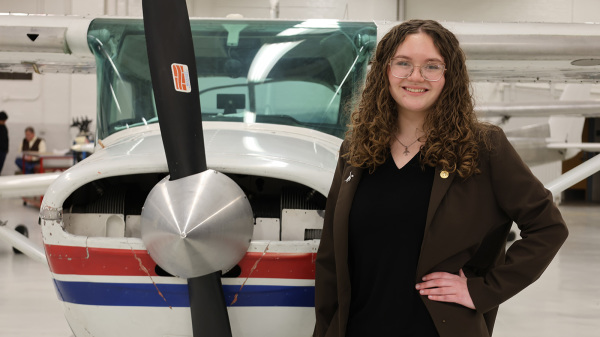Comforting Holiday Plans
Grief and sadness when celebrations are all around.
This heart warms my heart. It’s from a card my son made me. I don’t remember how young Adam was then, but this labor of love for his mother is now a very long way over two decades old. The heart, so carefully drawn and cut out, is attached to the handmade black card by a paper chain, engineering a pop-out effect. So special! I don’t remember the occasion – it just says “Ich liebe meine Mutter” inside, but that’s handy now: It can serve as a conduit to his love at any time. So this dear little card is doing Christmas duty.
It’s the second holiday season
since Adam died. Thank goodness, it’s not like last year, when “the best time of the year” came barreling down just a few months after the loss.
There’s something about this hectic and bubbly time that can intensify any reasons for sadness and misery. I don’t think it’s just because of dreading a particular day or two. The absence throws its ghastly weight into so much. Shopping for presents? You see a thing, and your heart clenches for the only person who would have chuckled over unwrapping
that. And on it goes. For some, the weeks afterwards are rougher, though they weren’t for me.
If it’s already making you feel more hollow or lonely at times, you’re in a lot of very good company. Last November,
a Harris poll found a large proportion of Americans didn’t feel like celebrating the season “due to a sense of grief and loss” – more than a third overall, and around half of the Hispanic respondents as well as those in their 20s and 30s. I don’t know how solid that poll was, or if this year is the same. But it’s sure to be common, especially with the pandemic driving up the number of people who are bereaved, having health struggles and worries because of that damned virus, or are more isolated to reduce the risk.
I trawled through a big bunch of the online resources for coping with grief during the holiday season to find some good ones to share. It’s such a frustrating exercise. So many come with some ideology or service to promote, or the writers don’t seem to even try to see how their words might look to someone who lost a child or younger person, for example. I found a trio, though, to recommend:
I know I only scratched the surface, and I’d be delighted to hear of other recommendations.
Some common tips bother me, though. “Surround yourself with friends”, for example. What if you don’t have that choice, at least, not on the particular day when everyone’s off with their family? Or, “concentrate on the children”, without acknowledging how painful that can be, too. (The first of the links above does, of course.)
It’s common to say “have a plan”, and also be prepared to opt out of it if you need to on the day. I had a plan B, and it was just as well, because I wasn’t up to plan A, and doing nothing would have been hard, too. When my remaining son and his family headed off for the in-laws, I did something I learned from watching Adam do it. I took my dog out to have rollicking off-leash fun. The doggo was so happy, it was infectious. So I copied another thing Adam used to do – I took my first selfie-with-dog, to capture that flash of happiness. This one:

This year’s plans will repeat this “what would Adam do” theme. Along with a full set of other everyday comforts lined up to look forward to for the evening.
A couple of weeks ago, I mentioned here that I’d done an interview for a special program on grief. The podcast is online now, at NPR – the December 9 edition of
The Pulse, on “Finding a way to live with grief.” It begins with an interview with Francine Wheeler, one of the mothers bereaved by the Sandy Hook school shooting, coming up to the 10th anniversary of that horrific day. That’s the heart of the episode. There’s a snippet of the interview with me near the end, mostly focused on why I needed hope so much in the severe grief after Adam’s sudden death. If you want to check out the research that made me hopeful,
it’s summarized at the blog I started in Adam’s memory if you haven’t already seen it.
This year, as life is so much better, I hope the rest of the holiday season will be too. At Christmas, I might also pop into Mastodon to check on how #
JoinIn is going there. If you know of other hashtags to follow up, let me know here, or ping me
@hildabast@mastodon.online.
As usual, there’s a collection below including what’s new from me this week, and an assortment of research and writing that caught my eye.
With a giant hug to everyone with any kind of deep heartache now.
Hilda- This week I added another cartoon to Statistically Funny, with some thoughts on science, questions, and who gets to ask them: So, so many questions!
- What can academic institutions do to reduce research waste and improve the reproducibility of research? Alexandra Davidson and colleagues have mapped out the terrain of potential interventions (which may or may not work as hoped). They found 93 of them, and mapped them into categories: tools (like providing particular software packages, or templates for study protocols); training; incentives (eg hiring and promotion criteria rewarding open science practice); modeling and mentoring; review and feedback; availability of expert support; and policies and procedures (such as data sharing policies and audits).
- Another comparison of preprints with the peer-reviewed versions later appearing in journals, this time of clinical research on medRxiv. There were 547 preprints, and the concordance with their later journal articles was very high: 86% had the same sample size, 98% the same primary endpoint(s), 81% the same results for those endpoints, and the conclusions were the same for 96%. That’s more support for not waiting the year or two wait till journal publication to pay attention to a study. It’d be great to see a systematic review on this now to be sure of the bigger picture.
- How many scholarly journals are there? It doesn’t seem as though anyone knows for sure – but it’s well north of 120,000, and it’s heavily constrained by the legacy and ongoing barriers created by imperialism and colonization. Scholars of the Global South and their concerns are still largely shut out of the powerful journals of the North, and the North’s systems largely shut out their journals, too. Saurabh Khanna and colleagues studied well over 25,000 active journals that use the open source Open Journal System, 80% from the Global South – mostly Indonesia (45%) and Brazil (10%). Most don’t require paid subscriptions and don’t charge authors to publish either. They confront a system of academic imperialism that largely doesn’t recognize they exist. Hardly any are included in the Web of Science’s citation count, though most are covered by Google Scholar.
- Finally, Richard Smith, the same one who was long-time editor of the BMJ, blogged on one of his pet topics: Urging us all to write down the stories of our lives, no matter how uninteresting we think our lives might be to others. “Think how much you would like to know more about your ancestors, and how much do you know?” he wrote. “I know something about my grandparents, but relatively little, and I know almost nothing about my great grandparents; and before that nothing. We disappear quickly without trace.”
- We do disappear quickly, but traces of us continue in the people around us, and so on. This week, it was 21 years since the amazing Chris Silagy died. If you were lucky enough to have ever encountered him, I don’t need to tell you what a force of nature he was! If you didn’t, you can read more in the links here on Mastodon, where I also posted a photo of Chris and me sharing a great laugh in a restaurant back in 1997. That was the year he was diagnosed. In his self-penned obituary in the Medical Journal of Australia, he wrote: “In the end, his battle with lymphoma was lost, but his vision and legacy will live on in many ways.” As usual, he was right: It does.
Originally posted on Substack on December 15, 2022.
Mourning the death of a loved one is always difficult, and the holiday season can be especially painful. Here are some suggestions to help you through.
Amy Goyer (AARP)



Giggles
Hugz & xXx